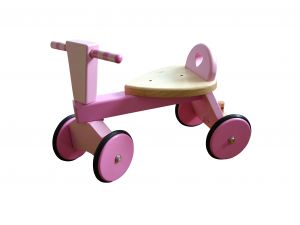By Avanya Manasseh
 It’s 8:30 in the morning. My husband looks at me on his way to work and says, “Have a great day!” Apparently he didn’t notice the poop on my shirt and disinfectant wipes in my hand. Or the scrambled eggs in my hair. He must not have seen our toddler nursing and clinging like a monkey to my neck while I cleaned poop from the floor. No, he just smiled his enviably brushed teeth at us and went on his way. Thus began another 12-hour day of toddler care, following and sure to be followed by an all-too-short night of toddler care.
It’s 8:30 in the morning. My husband looks at me on his way to work and says, “Have a great day!” Apparently he didn’t notice the poop on my shirt and disinfectant wipes in my hand. Or the scrambled eggs in my hair. He must not have seen our toddler nursing and clinging like a monkey to my neck while I cleaned poop from the floor. No, he just smiled his enviably brushed teeth at us and went on his way. Thus began another 12-hour day of toddler care, following and sure to be followed by an all-too-short night of toddler care.
I’ve never met a parent without a tome of similar stories. Soon enough, I’m told, my toddler will be a teenager and I can remind her of these moments. This is small consolation right now, and I try to keep in mind how much I do love this growing nursling and wouldn’t parent her any other way.
Well described by Norma Jane Bumgarner in her book Mothering Your Nursing Toddler as a “baby on wheels,” a toddler is not what people will tell you about when you get pregnant. They woo you with tales of first giggles, first words, first steps. Few mention that toddlers learn to say “no” long before “yes.” Not that toddlerhood is all bad – in our family it is far preferable to those early months of endless crying. Constant babywearing, bedsharing, breastfeeding, and endless love didn’t seem to stop the tears. But these eventually paid off, and Naila is a joyous 18-month-old. But this baby on wheels is just that: a baby with more desire than ability.
I often struggle to find the balance between sensitive response and the safety guardian all these desires require as they meet increasing skill. Coupled with sleep deprivation and the frustration that stems from limited verbal communication, the truth is sometimes I DO need to let Naila “cry it out” when she wants to watch television and I think we should read books instead. I hold her, distract her, attempt to find enticing alternatives, but let’s be real: She’s screaming at the top of her lungs. The same scenario unfolds throughout the day when I won’t let her handle steak knives, run into the street, or drink window cleaner. Her tears tell the story of the deep injustice she feels. “Surely,” I imagine she thinks, “SOMEONE out there loves me more and WILL let me play with steak knives!”
Jean Liedloff reminds us in her book The Continuum Concept (Da Capo Press, 1977) that even though a child may be old enough to play independently, that doesn’t mean she should be left to do so all the time. Liedloff emphasizes the importance of constant babywearing until the baby is ready to crawl, and then continued babywearing until the child desires to get down and explore. After reading this, I realized I had given in to the “ability mindset” and was trying to force Naila to entertain herself while I grabbed a few minutes here or there to do chores around the house without her “help.” What she really needed was to participate with me just as she always used to. She hasn’t changed nearly as much as I imagine, and her need to be physically close is still far stronger than her desire to do something more interesting than watch me empty a dishwasher from her perch on my back.
I need frequent reminders that although she is growing quickly, Naila is still the child and I the adult. Sharing sleep means that when Naila has a difficult night, so do I. The result is that the next day we are both tired and grumpy. But as the adult, I understand why we feel that way and have the capacity to overcome it. I need to rise above the occasion, tie on my sneakers, and go outside for some fresh air for both of us. As my mood improves, hers always follows. Even though we often feel the same way, I need to lead her out of any negativity she is feeling. The resulting giggles are surely a well-earned reward.
One of the greatest tools a parent of a toddler has at her disposal is creativity. When boredom or frustration seems to loom, it’s important to get ahead of the game as quickly as possible. Before a tantrum starts, try to get your head out of the situation and jump into prevention mode. A spontaneous game of peek-a-boo or a quick change of scenery can often save the day by distracting your little one from the frustrations you know he is feeling. If your usual bag of tricks doesn’t work, remember: This is still your baby; get him into the baby carrier and turn on some music or head outside. The same patient responses that you used with your newborn will still be helpful with your energetic toddler.
It’s important to recognize that a child lives in a world that is very different from the one you share with her. It is filled with experiences she cannot communicate about effectively. This is especially evident with teething. We know why they are uncomfortable, and we know it won’t last forever, but how can we expect small children to recognize these things? All they feel is pain for unknown reasons, and they usually can’t tell us about it. How would we feel if something hurt, and we didn’t understand it and couldn’t tell anyone?
With the joys of increased communication, fast running, and newfound independence, toddlerhood also brings a new set of parenting challenges. By keeping the same principles in mind that we used with our newborns, we can learn new ways to apply our beliefs in sensitivity during this stage. Through continued physical touch, a high-energy mindset, and constant checks on our perspective, each day’s challenges can be met with the same sensitivity as always. Sensitive parenting through this phase is not easy, but sharing the excitement of toddlerhood with your little one is certainly worth the effort!
 Various parenting approaches are usually categorized as either child-centered or parent-centered, and there is great contention about which is better for both children and parents. Child-centered, critics say, compromises a parent’s sense of balance and may lead to children feeling entitlement. Parent-centered, critics counter, compromises a child’s need for parental attention and attunement.
Various parenting approaches are usually categorized as either child-centered or parent-centered, and there is great contention about which is better for both children and parents. Child-centered, critics say, compromises a parent’s sense of balance and may lead to children feeling entitlement. Parent-centered, critics counter, compromises a child’s need for parental attention and attunement.






 One of my worst parenting days was when I was still sitting at my computer in pajamas and my husband walked through the front door. I thought that he had forgotten his laptop again and returned to get it so that he could go back to work and get started on his day. When he didn’t seem to want to leave again, I realized that it was suppertime and that I had succumbed to spending the whole day in the black hole of the internet and social media.
One of my worst parenting days was when I was still sitting at my computer in pajamas and my husband walked through the front door. I thought that he had forgotten his laptop again and returned to get it so that he could go back to work and get started on his day. When he didn’t seem to want to leave again, I realized that it was suppertime and that I had succumbed to spending the whole day in the black hole of the internet and social media.